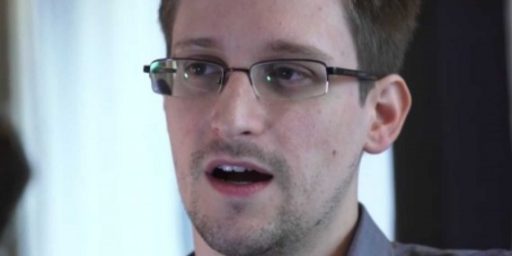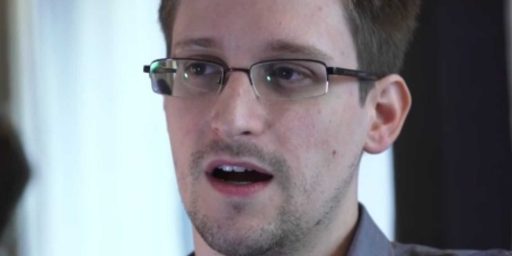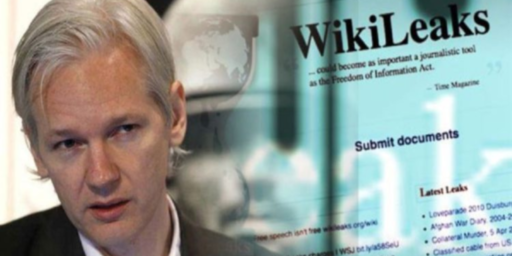A Third Term for Ecuador’s Correa
Via the BBC: Ecuador election: President Rafael Correa wins new term
First elected in 2007, the socialist leader is widely credited with bringing political stability to a nation that suffered decades of protests and coups.
But critics accuse Mr Correa of being a dictator in the making.
In broad brushstrokes, I suppose that gives one a general feel for the situation. There is little doubt that Ecuador has been far more stable since Correa was elected, although the methods through which he was able to get the constitution re-written in 2009 were dubious, from a legal standpoint.
The basic contrast:
During his six years in power, Mr Correa has expanded access to healthcare and education and improved thousands of miles of highways, creating many jobs in the process. Poverty rates have dropped significantly.
[…]
But critics say that, since coming to office, he has filled the courts and government positions with allies and stifled free speech by taking on the media.
They also complain he has restricted free enterprise with heavy taxation and regulatory changes and taken government spending to an unsustainable level.
The test, of course, of his long-term aspirations will come at the end of the current term in office.





What does that even mean in this context? In the United States, it would mean a politician telling someone to “go frak yourself”, but here?
@Timothy Watson:
Correa famously prosecuted a newspaper when a columnist called him a dictator several times in a same column, demanding 40 million dollars and jail time for both the columnist and the owner of the newspaper. He trounced when the international community criticized him. NewStatesman, hardly a right wing outlet, pointed out that Ecuador´s press freedom record is horrible:
http://www.newstatesman.com/blogs/david-allen-green/2012/08/five-legal-myths-about-assange-extradition
Most Latin American countries have horrible defamation and libel laws and the courts are simply terrible. Many politicians uses that to silence critics. And since the media is heavily concentrated it´s pretty hard to take sides. Brazil´s Lula faced a media where almost all major outlet resembled Fox News and thought that he was a Democrat.
Since most usual Latin American politicians are horrible and since the local media is horrible it´s harder than it should to criticize people like Correa and Chavez.
@Timothy Watson:
Correa famously sued a newspaper when a columnist called him a dictator several times in a same column, demanding 40 million dollars and jail time for both the columnist and the owner of the newspaper. He trounced due to pressure from the international community. NewStatesman, hardly a right wing outlet, pointed out that Ecuador´s press freedom record is horrible:
http://www.newstatesman.com/blogs/david-allen-green/2012/08/five-legal-myths-about-assange-extradition
Most Latin American countries have horrible defamation and libel laws and the courts are simply terrible. Many politicians uses that to silence critics. And since the media is heavily concentrated it´s pretty hard to take sides. Brazil´s Lula faced a media where almost all major outlet resembled Fox News and thought that he was a Democrat.
It´s harder than it should be to criticize people like correa and Chavez, because not only the press but the traditional politicians in these countries are horrible.
He’s basically Chavez-Lite, meaning that he’s popular because he ramped up social spending on an admittedly quite poor population. What makes him different from Chavez is less violence and less resorting to expropriations of private companies.